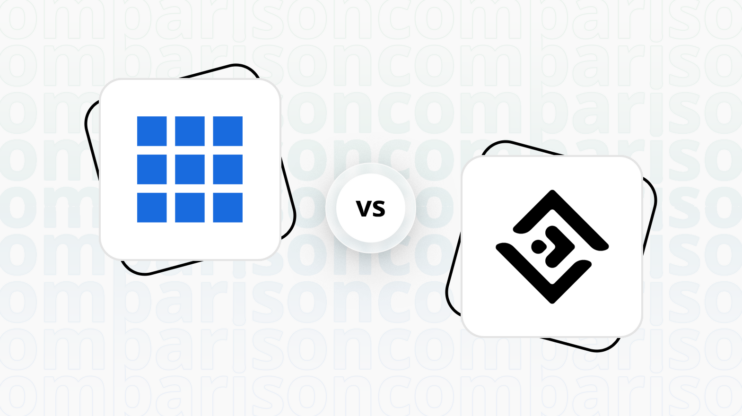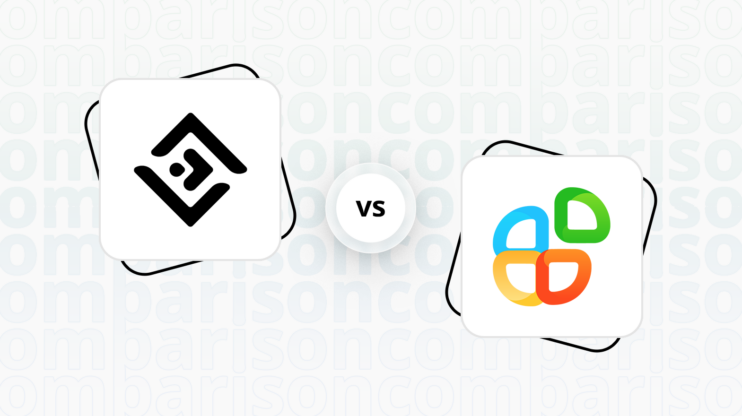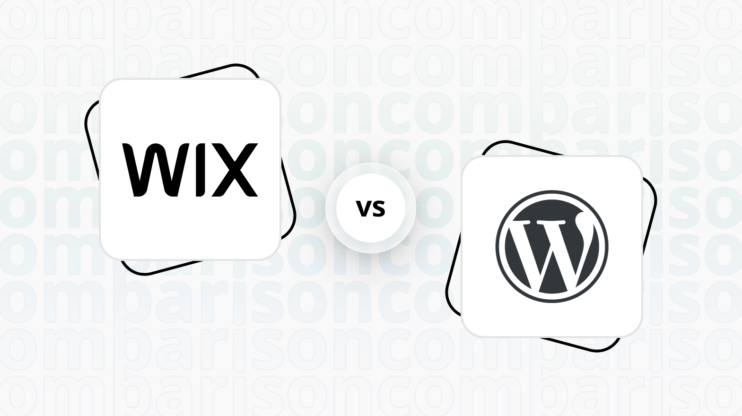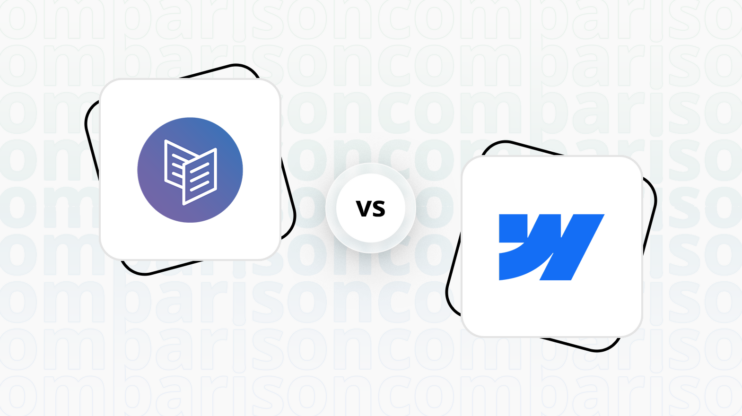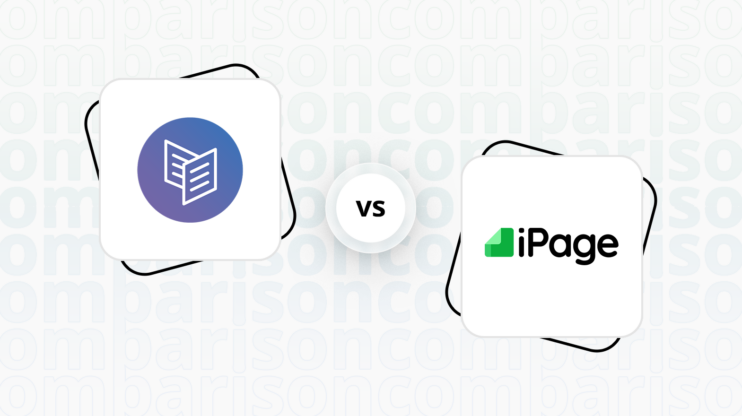Final verdict
In the comparison between BlueHost and Appy Pie, both platforms exhibit strengths in different areas, catering to diverse user needs.
-
BlueHost (Overall Grade: 6.8/10)
excels in hosting quality, security, and plugins and integrations, making it a strong choice for users who prioritize comprehensive web hosting services alongside website building capabilities. Its integration with WordPress offers a vast array of customization options, appealing to users who seek flexibility and access to a wide range of themes and plugins. However, it falls short in AI capabilities and user management when compared to Appy Pie. -
Appy Pie (Overall Grade: 7.2/10)
stands out for its ease of use, AI capabilities, and customer support, positioning it as an ideal solution for users looking for a user-friendly, no-code platform with quick deployment. Its AI website builder and extensive customer support make it accessible for users of all skill levels, including those without coding knowledge. While it offers a wide range of features, it may not match BlueHost’s depth in hosting options and security measures.

|

|
|
|---|---|---|
|
Design functionalities & templates |
7.2 |
6.8 |
|
Ease of use |
8.2 |
8.3 |
|
Ecommerce |
6.8 |
7.2 |
|
Website Editors |
7.3 |
7.7 |
|
Product testing options |
6.2 |
8.9 |
|
Price |
7.2 |
7.4 |
|
Hosting quality |
8.0 |
6.9 |
|
Website speed optimization |
6.5 |
5.0 |
|
Plugins and integrations |
9.1 |
6.4 |
|
Marketing features |
7.3 |
7.5 |
|
Customer support |
7.6 |
8.2 |
|
Security |
8.3 |
7.5 |
|
AI capabilities |
1.5 |
7.2 |
|
User Management |
4.4 |
7.3 |
| Overall |
6.8 |
7.2 |
Best for ecommerce
 6.8
6.8
 7.2
7.2
Verdict
: While both BlueHost and Appy Pie offer solid ecommerce capabilities, Appy Pie edges out slightly ahead with its focus on ease of use and comprehensive features tailored for online stores.
-
BlueHost
: Offers a robust platform that integrates well with WordPress, providing access to a wide range of ecommerce functionalities through plugins like WooCommerce. It’s suitable for users who prefer a blend of customization and hosting solutions, making it a good choice for businesses that are scaling up. -
Appy Pie
: Stands out for its no-code approach, making it easier for beginners to set up and manage their online stores. With features like multiple currencies, promotions, and order management, it caters well to small businesses looking to establish an online presence quickly and efficiently.
Best for informational & business websites
 7.5
7.5
 7.4
7.4
Verdict
: With both platforms closely matched, BlueHost edges out slightly as the better choice for informational and business websites, thanks to its comprehensive features and WordPress integration.
-
BlueHost
: Offering a robust suite of tools including a user-friendly website builder and seamless WordPress integration, BlueHost is well-suited for creating professional-looking informational websites. Its wide range of customization options and access to thousands of themes and plugins make it a versatile choice for a broad audience. -
Appy Pie
: While Appy Pie is slightly behind in score, it remains a strong contender for those prioritizing ease of use and quick deployment. Its no-code platform is ideal for users looking to establish an online presence with minimal effort and technical know-how, making it a practical solution for simple informational sites.
Detailed comparison
Design functionalities & templates
Design FunctionalitiesRepresents how well each platform allows for creative design and customization of websites.Score Components:
- Template Variety (30%): Range and quality of design templates.
- Customization (30%): Flexibility and options for design alterations.
- User Interface (20%): Ease and intuitiveness of the design process.
- Responsiveness (10%): Adaptability to different devices and screen sizes.
- Innovation (10%): Unique design features and tools.
 7.2
7.2
 6.8
6.8
Winner: BlueHost.
If you’re looking for a platform that offers more creative control and a wide array of design features, BlueHost is the preferred choice.
BlueHost’s WordPress website builder offers over 300 pre-installed templates and designs to cater to the diverse needs of its users, ensuring that there’s something for everyone, regardless of the niche or industry. With hundreds of customizable templates available, users can easily find a design that aligns with their vision and brand identity. These templates are designed to be responsive and SEO-friendly, enhancing the user experience and visibility of the websites. From simple blog layouts to complex ecommerce designs, BlueHost provides a comprehensive selection to help users create professional-looking websites with ease.
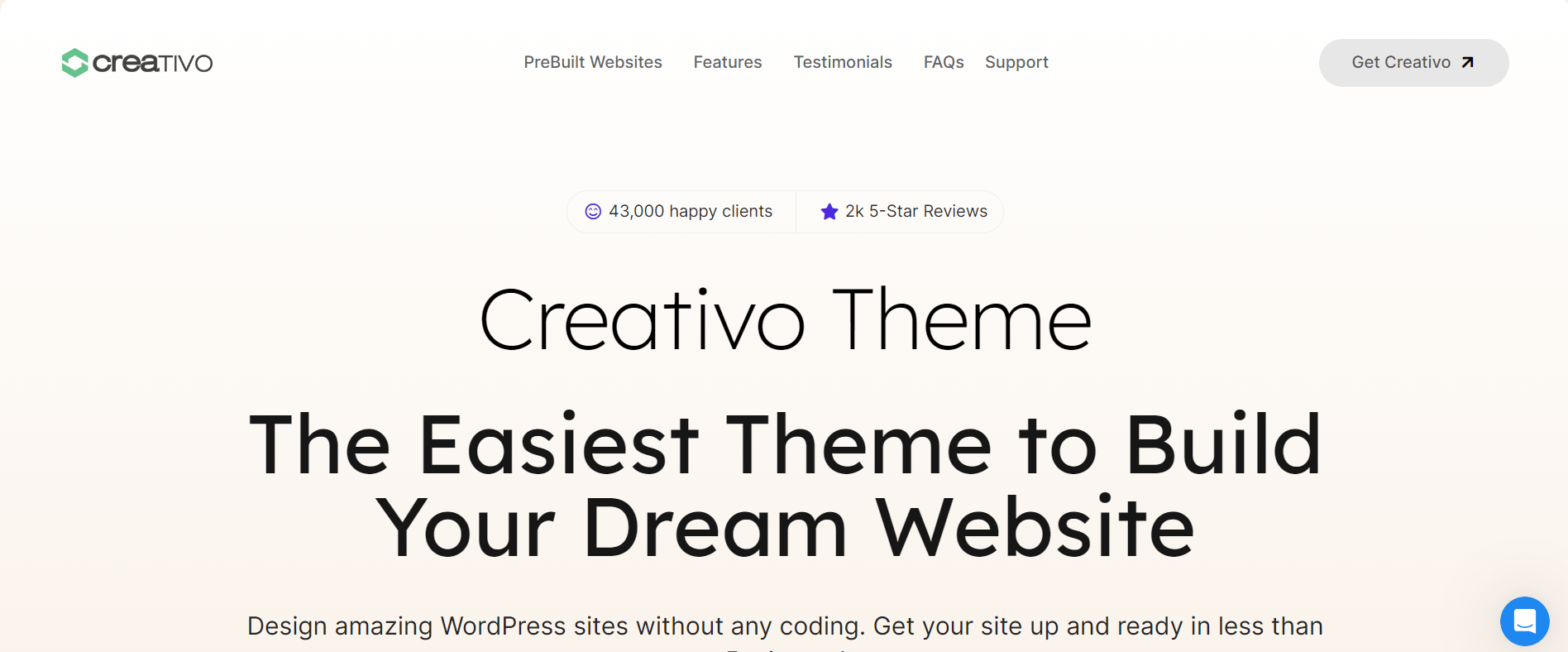
Compared to BlueHost, Appy Pie offers a wide array of website templates with over 10,000 options, catering to various needs and budgets. Categorized across industries, these templates are mobile-friendly and customizable, allowing users to edit colors, fonts, layouts, and add features. The platform’s pre-designed themes, layouts, and user-friendly drag-and-drop builder enhance visual appeal and customization ease, making it accessible for users without coding knowledge.
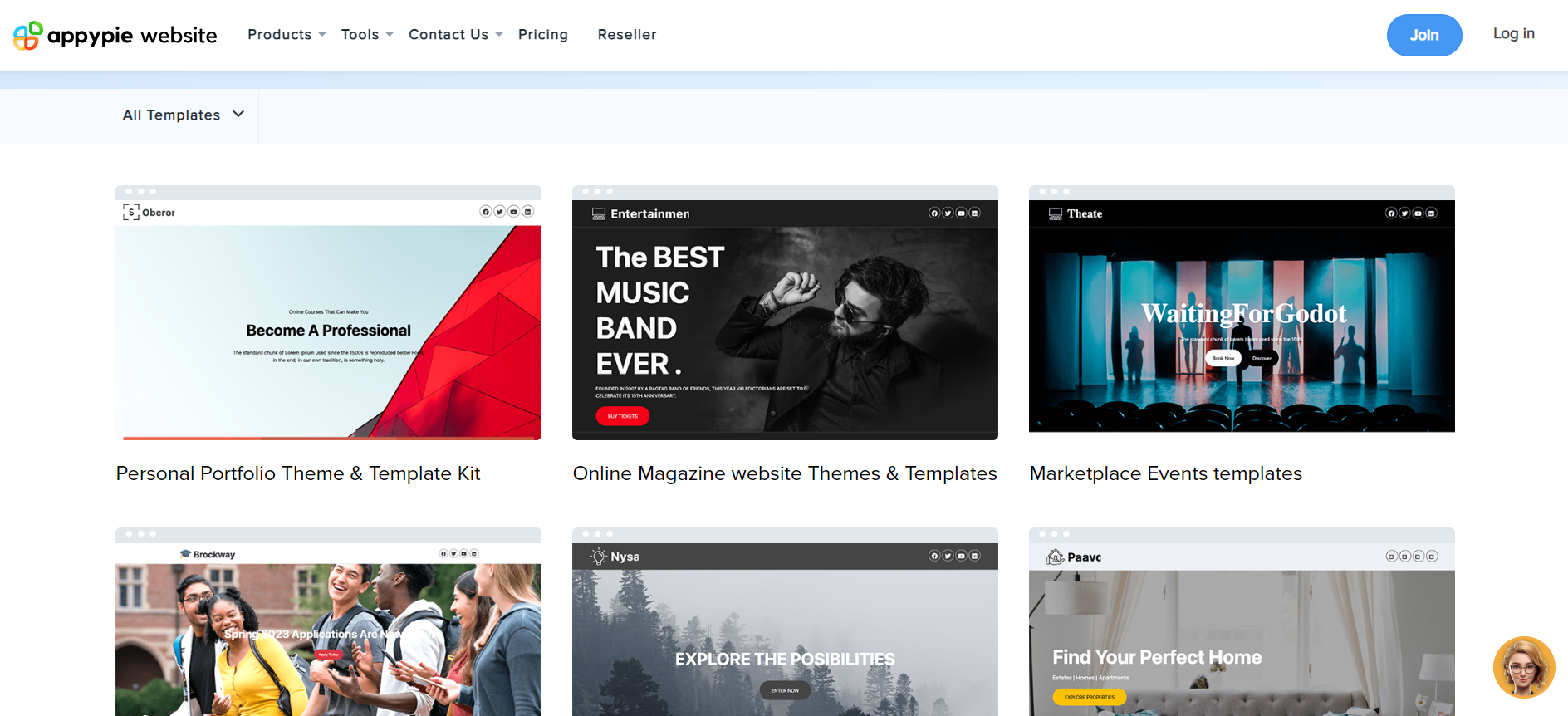

Get a head start on website creation with AI
Create a custom website tailored to your business needs 10X faster with 10Web AI Website Builder!
Ease of use
Ease of useReflects the platform’s overall user-friendliness.Score
Components:
- Learning curve (40%): Quickness and ease of getting started.
- Interface design (30%): Simplicity and intuitiveness of layout.
- User guidance (20%): Quality of tutorials and support.
- Flexibility (10%): Adaptability to various user skills.
 8.2
8.2
 8.3
8.3
🏆 Winner: Appy Pie
. Scoring a narrow victory with 8.3, Appy Pie is acclaimed for its simplicity and intuitive design, making it highly accessible for users without coding skills. BlueHost, with a score of 8.2, offers a robust platform with a wide range of templates and customization options, but falls slightly behind in this category.
Learning Resources
🏆 Winner: BlueHost
. While both platforms offer solid learning resources, BlueHost’s WordPress Academy offers a wide range of comprehensive resources developed by WordPress experts, making it easier for users to learn and adapt.
For ecommerce
EcommerceMeasures the platform’s effectiveness in supporting online business activities.Score Components:
- Ecommerce themes and templates (20%): Variety and design of templates.
- Product management (25%): Ease of managing and organizing products.
- Payment options (25%): Variety and convenience of payment methods.
- Ecommerce features (20%): Features for managing an ecommerce store.
- Integration (10%): Compatibility with external e-commerce tools and services.
 6.8
6.8
 7.2
7.2
When it comes to ecommerce, both BlueHost and Appy Pie offer a range of features to help users build and manage online stores. However, Appy Pie scores slightly higher than BlueHost in this category.

|

|
|
|---|---|---|
|
Ecommerce themes and templates |
6.5 |
6.0 |
|
Product page customization |
7.0 |
7.0 |
|
Payment processing and commissions |
6.8 |
6.5 |
|
POS capabilities |
0.0 |
6.0 |
|
Payment gateways |
7.5 |
7.5 |
|
Product numbers |
6.0 |
6.5 |
|
Additional ecommerce features |
6.5 |
7.0 |
BlueHost ecommerce features:
- Product Listings
- Shopping Carts
- Secure Payment gateways
- Shipping Options and Tax Calculations
- Inventory Management
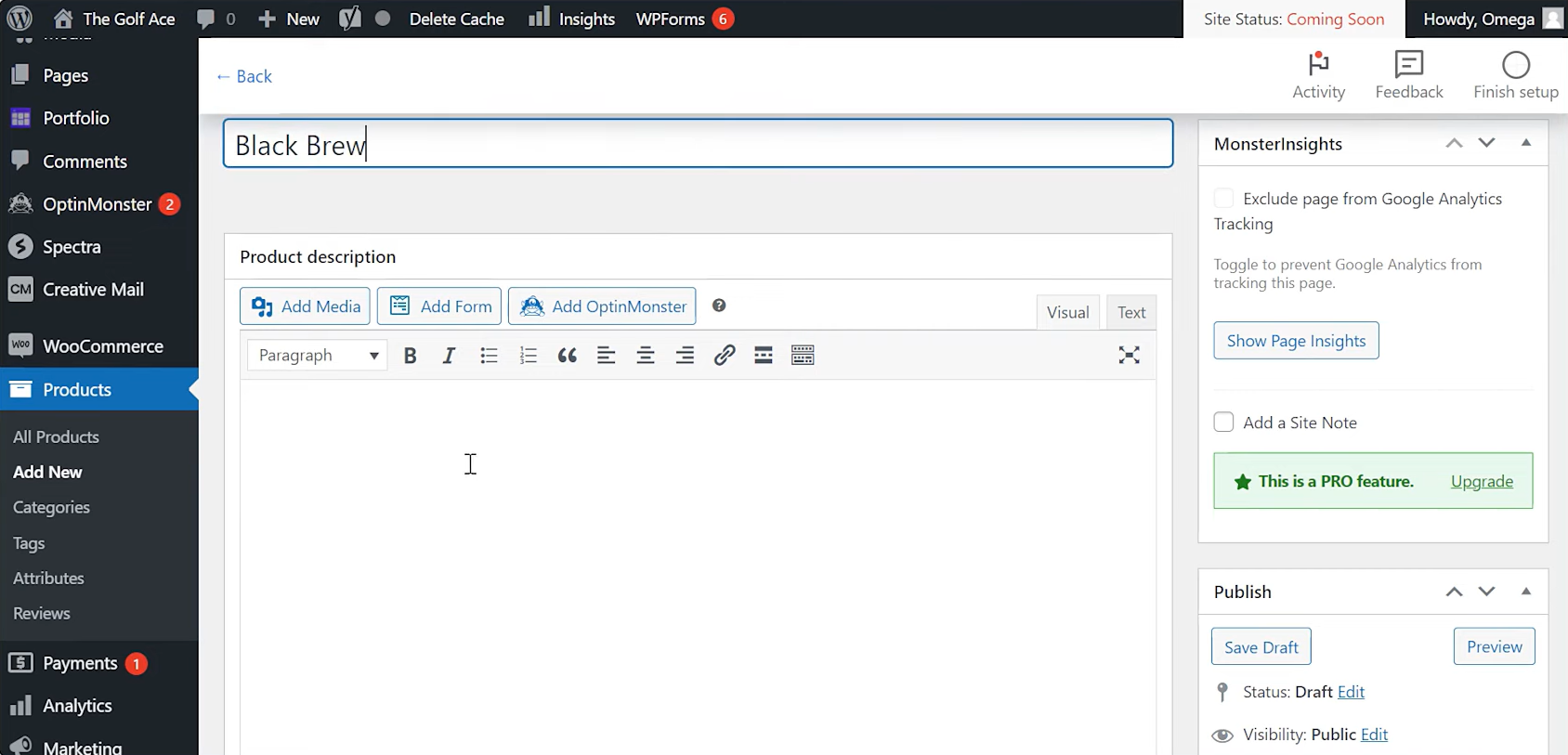
Appy Pie ecommerce features:
- Product and Inventory Management
- Shopping Cart
- Multiple Currencies
- Promotions and Discounts
- Order Management
- Shipping Options
- Analytics
- Tax management
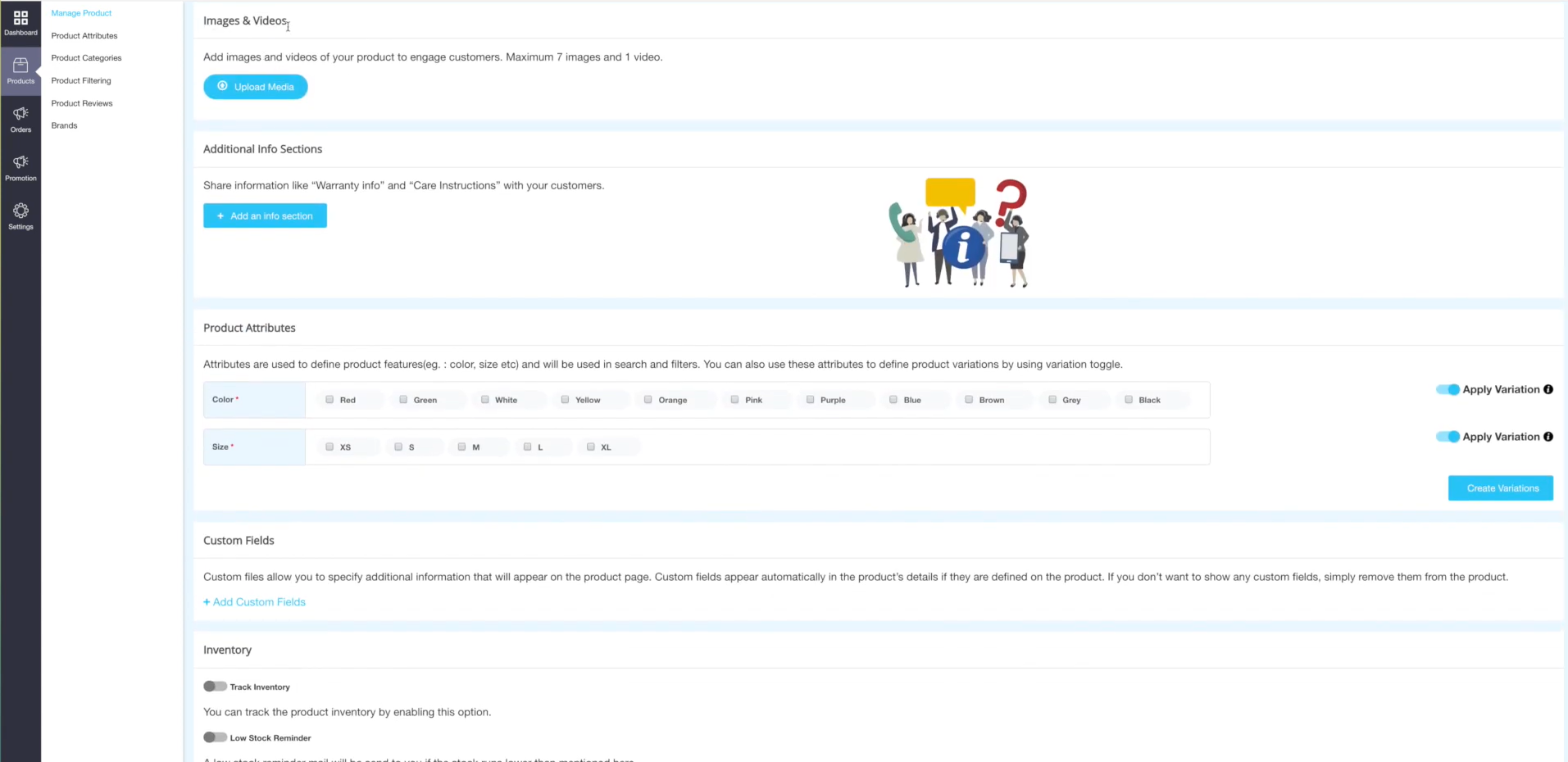
Ecommerce themes & templates
BlueHost’s website builder for eCommerce provides a selection of specific templates designed to streamline the creation of online stores. These templates are optimized for sales, featuring designs that accommodate product galleries, shopping carts, and checkout processes. On the other hand, Appy Pie offers a small selection of ecommerce website templates. These templates are designed to help users create online stores quickly and efficiently, without the need for coding skills. Appy Pie’s ecommerce templates feature mobile-first designs, customizable product galleries, and various other features aimed at enhancing the online shopping experience for both the store owner and their customers.
Product page customization
BlueHost’s website builder offers robust customization features for product pages, allowing users to tailor product details like titles, descriptions, images, and pricing according to their preferences. It supports the creation of product variants and options, facilitating the sale of items with multiple choices such as size, color, and material directly from the product page. Similarly, Appy Pie’s Website Builder provides users with extensive customization options for product pages, enabling the creation of unique online stores or product showcases without requiring advanced coding skills.
Payment processing
BlueHost doesn’t directly support numerous payment gateways. However, it does integrate with WooCommerce, a platform that facilitates integration with various payment gateways like PayPal and Stripe. While BlueHost doesn’t impose transaction fees, the payment gateways might. Furthermore, it lacks Point of Sale (POS) capabilities. In contrast, Appy Pie offers a user-friendly platform for integrating payment processing and POS capabilities into mobile apps and online stores, supporting multiple payment gateways like PayPal, Stripe, and Square for secure and versatile customer transactions. While it facilitates easy payment integrations, commission management may require third-party solutions or custom setups. This makes Appy Pie an effective tool for businesses looking to provide a comprehensive shopping experience with a focus on mobility and flexibility.
Website Editors
Website EditorsEvaluates the platforms’ website building and editing capabilities.Score Components:
- Customization tools (40%): Range and power of editing features.
- Editor usability (30%): User experience within the editor.
- Design flexibility (20%): Freedom in layout and design changes.
- Update and maintenance ease (10%): Simplicity of updating and maintaining the site.
 7.3
7.3
 7.7
7.7
🏆
Winner: Appy Pie
. Appy Pie, with a score of 7.7, offers a user-friendly, cloud-based platform that allows individuals, professionals, and small businesses to create mobile-friendly websites without needing to code. It offers a drag-and-drop interface, customizable templates, and various features like social media integration, ecommerce capabilities, and SEO tools. This makes it an ideal solution for quickly creating a wide range of websites, from landing pages to online stores, tailored to users’ specific needs and brand identities.
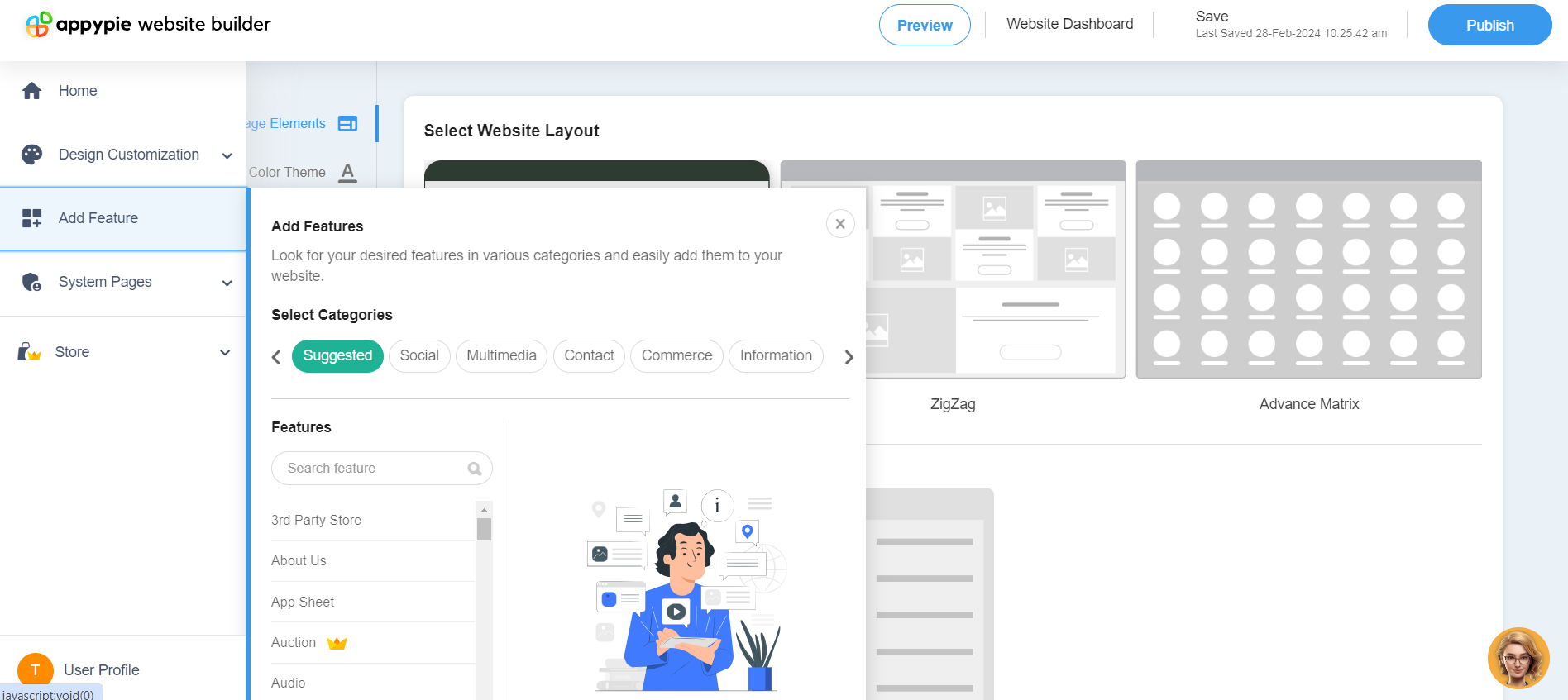
BlueHost’s website builder editor, scoring 7.3, is designed for ease of use, catering to both beginners and advanced users. It offers a section based drag-and-drop interface, allowing users to easily add, remove, and customize elements on their website without needing to code. Users can choose from a wide range of templates and customize them to fit their brand, including adjusting layouts, colors, and fonts. Additionally, the editor provides access to stock photos, SEO tools, and responsive design features, ensuring websites look great on all devices and can rank well on search engines.
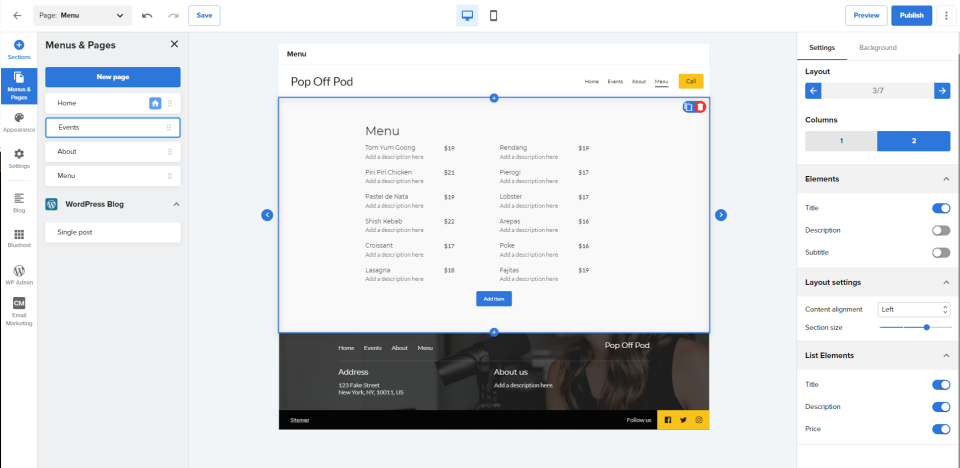
Mobile editor/app
 5.0
5.0
 5.5
5.5
🏆
Winner: Appy Pie
. Both BlueHost and Appy Pie do not have a dedicated mobile editor app. However, they allow users to edit their websites via a mobile browser. While this provides some flexibility, it may come with limitations compared to a full-featured desktop editor.
BlueHost’s mobile editing capabilities are somewhat limited, as it does not have a dedicated mobile editor app. Users can edit their websites on a mobile browser, but they may encounter some restrictions.
On the other hand, Appy Pie, while also lacking a dedicated mobile app, allows users to edit their websites using a mobile browser. This suggests that Appy Pie may offer a slightly better mobile editing experience, as reflected in its higher mobile editor score.
In conclusion, while both builders offer mobile browser editing, Appy Pie edges out BlueHost in this category due to its slightly higher mobile editor score.
Product testing options
Product Testing OptionsAssesses the options for trying out platform features before commitment.Score Components:
- Trial quality (40%): Extent and usefulness of the trial or free version.
- Feature accessibility (30%): How many features are available to test.
- Trial duration (20%): Length of the trial period.
- Ease of transition (10%): Smoothness of moving from trial to paid plans.
 6.2
6.2
 8.9
8.9
Overall Result
:
Appy Pie Wins
. Appy Pie scores 8.9, significantly higher than BlueHost’s 6.2. Appy Pie offers a 30-day free trial with access to all premium features, providing a comprehensive testing experience. BlueHost, on the other hand, does not offer a free or trial version, but allows testing of premium features within a 30-day refundable period.

|

|
|
|---|---|---|
|
Free Plan |
No | No |
|
Trial Duration |
No |
30 days |
|
Testing Premium Features |
Within 30-day refundable period |
All features during free trial |
Price
PriceLooks at the cost-effectiveness and value for money of each platform.Score Components:
- Plan value (40%): What each pricing tier offers.
- Transparency and clarity (30%): Clearness of pricing structures.
- Flexibility of plans (20%): Range of options to suit different budgets.
- Hidden costs (10%): Additional expenses not included in the plan.
 7.2
7.2
 7.4
7.4
BlueHost and Appy Pie have similar price scores, but BlueHost offers more comprehensive plans and a significant discount for annual subscriptions. Appy Pie, on the other hand, provides a simpler pricing structure and an enterprise plan for businesses with specific needs.

|

|
|
|---|---|---|
|
$10-$20 |
Basic ($15.99/month): Made for a simple website or blog, 1 website with 10GB SSD storage, Free CDN, Free Domain 1st year, Managed WordPress Hosting, Free SSL 1st year and Chat Support. Value for price: 6.5 |
Start ($18/month): Suitable for personal projects, offering 50 GB storage and access to professional theme templates, domain connection, no Appy Pie ads, CSS & Java customization, etc. Value for price: 6.5 |
|
$20-$30 |
Choice Plus ($27.99/month): Ideal for multiple sites needing storage, security, backups, 3 websites with 40GB SSD storage, Free CDN, Free Domain 1st year, Managed WordPress hosting, Free SSL, Free Domain privacy 1st year, Malware scanning, daily site backups are free for the 1st year with the purchase of a 12 or 36-month package. Otherwise, users are required to pay a one-time fee of $35.88 for backup services. Value for price: 7.5 |
No offering at this amount. |
|
$30-$38 |
Online Store ($32.99/month): Great for all online selling, built-in eCommerce tools, 3 websites with 40GB SSD storage, Free CDN, Free Domain 1st year, Managed WordPress hosting, Free Domain privacy 1st year, Malware Scanning, Exclusive Theme Store, Store Analytics, Unlimited products, Secure Payment options, Bookings & appointments, Shipping labels, product search and filtering, daily site backups are free for the 1st year with the purchase of a 12 or 36-month package. Otherwise, users are required to pay a one-time fee of $35.88 for backup services. Value for price: 8.5 |
Grow ($36/month): Aimed at small businesses, providing unlimited storage, advanced marketing and monetizing tools, multiple payment gateways, etc. Value for price: 8.5 |
|
$38+ |
Pro ($39.95/month): Perfect for high traffic, advanced storage, security, 5 websites with 100GB SSD storage, Free CDN, Free Domain 1st year, Managed WordPress hosting, Free SSL, Free Domain privacy 1st year, Malware Scanning, daily site backups are free for the 1st year with the purchase of a 12 or 36-month package. Otherwise, users are required to pay a one-time fee of $35.88 for backup services. Value for price: 9.0 |
No offering at this amount. |
location. As a result in rare cases the prices displayed here can differ from the ones you see on their
websites.
Hosting quality
Hosting
qualityExamines the reliability and performance of the hosting solutions.Score Components:
- Uptime (40%): Consistency and reliability of website availability.
- Speed (30%): Loading times and performance.
- Bandwidth and storage (20%): Sufficiency of resources provided.
- Data centers (10%): Quality and distribution of hosting infrastructure.
 8.0
8.0
 6.9
6.9
Winner: BlueHost
. BlueHost offers a range of hosting options with features designed to support websites at various stages of growth, from shared to dedicated hosting. Their hosting plans include technologies to ensure fast load times, such as SSD storage, CDN services, and Cloudflare integration. On the other hand, Appy Pie offers a hosting solution, without providing details on hosting types. It features plans with storage options ranging from 50GB to unlimited and includes unlimited bandwidth for all plans to accommodate varying traffic volumes.

|

|
|
|---|---|---|
|
Do they offer hosting? |
Yes, offers a range of hosting options |
Yes, AppyPie offers a hosting solution |
|
Data Centers: |
6 data centers: Orem and Provo, Shanghai, Mumbai and Hong Kong, London |
Appy Pie relies on Amazon Web Services (AWS) |
|
Type of hosting: |
Managed WordPress Hosting |
Proprietary hosting service |
|
Uptime: |
99.9% |
99% |
|
Uptime Guarantee: |
Yes, 99.9% |
Yes, 99% |
Website Speed Optimization
Website Speed OptimizationEvaluates optimization of website loading timesScore Components:
- PageSpeed Score (30%): Google’s score indicating performance optimization.
- Loading Time (30%): The average time until a website is fully interactive.
- Mobile Optimization (15%): Optimization effectiveness for mobile devices.
- Resource Optimization (15%): Optimizing images, scripts, and other heavy resources.
- CDN Usage (10%): Use of CDN to enhance speed across geolocations.
 6.5
6.5
 5.0
5.0
🏆 Winner: BlueHost
Both BlueHost and Appy Pie offer tools and features that can help optimize website speed. However, BlueHost takes a more proactive approach by providing CDN and server optimization, while Appy Pie relies on users to optimize their website’s speed.

|

|
|
|---|---|---|
|
Focus |
CDN, Server Optimization |
User-driven optimization |
|
Performance Tools |
Google Lighthouse, PageSpeed Insights |
User-driven optimization tools |
|
Key Strategies |
CDN, Server Optimization |
No specific strategies disclosed |
|
Load Times |
Varies widely, depending on optimization |
Varies widely, depending on user’s location |
|
Page Speed Scores Range |
Varies widely, depending on optimization |
Varies widely, depending on optimization |
|
Core Web Vitals Improvement |
Emphasis on LCP, FID, CLS improvements |
No information disclosed |
BlueHost, a comprehensive web hosting service, also offers a user-friendly website builder. It integrates seamlessly with WordPress, allowing for a wide range of customization options and access to thousands of themes and plugins. BlueHost places a strong emphasis on website performance and page speed, offering CDN and server optimization as key strategies for speed optimization. However, both load times and PageSpeed scores can vary widely, depending on the optimization and website complexity.
On the other hand, Appy Pie’s Website Builder is a part of their no-code development platform, designed to enable users to create websites easily and quickly without requiring any coding skills. While Appy Pie does not directly implement specific speed optimization strategies, they offer various tools and features that can help users optimize their website’s speed on their own. However, both load times and PageSpeed scores can vary widely, depending on the optimization and user’s location. Appy Pie does not disclose any information on their Core Web Vitals improvements.
Get a head start on website creation with AI
Create a custom website tailored to your business needs 10X faster with 10Web AI Website Builder!
Plugins and integrations
Plugins and integrationsMeasures the range and effectiveness of additional plugins and integrations.Score Components:
- Variety of options (40%): Range of available add-ons.
- Integration smoothness (30%): Ease of integrating plugins into the site.
- Quality of plugins (20%): Functionality and reliability of the options.
- Custom integration capabilities (10%): Support for custom or third-party integrations.
 9.1
9.1
 6.4
6.4
🏆 Winner: BlueHost.
With a score of 9.1, BlueHost takes the lead in this category. Its integration with WordPress opens up a vast ecosystem of plugins and extensions, ranging from SEO tools to e-commerce solutions. This makes it a versatile choice for users looking to customize and enhance their websites. Appy Pie, scoring 6.4, also offers a range of plugins and extensions, but its offerings are more limited compared to BlueHost.
However, Appy Pie’s focus on ease-of-use and quick deployment may make it a more suitable choice for users with minimal technical know-how.
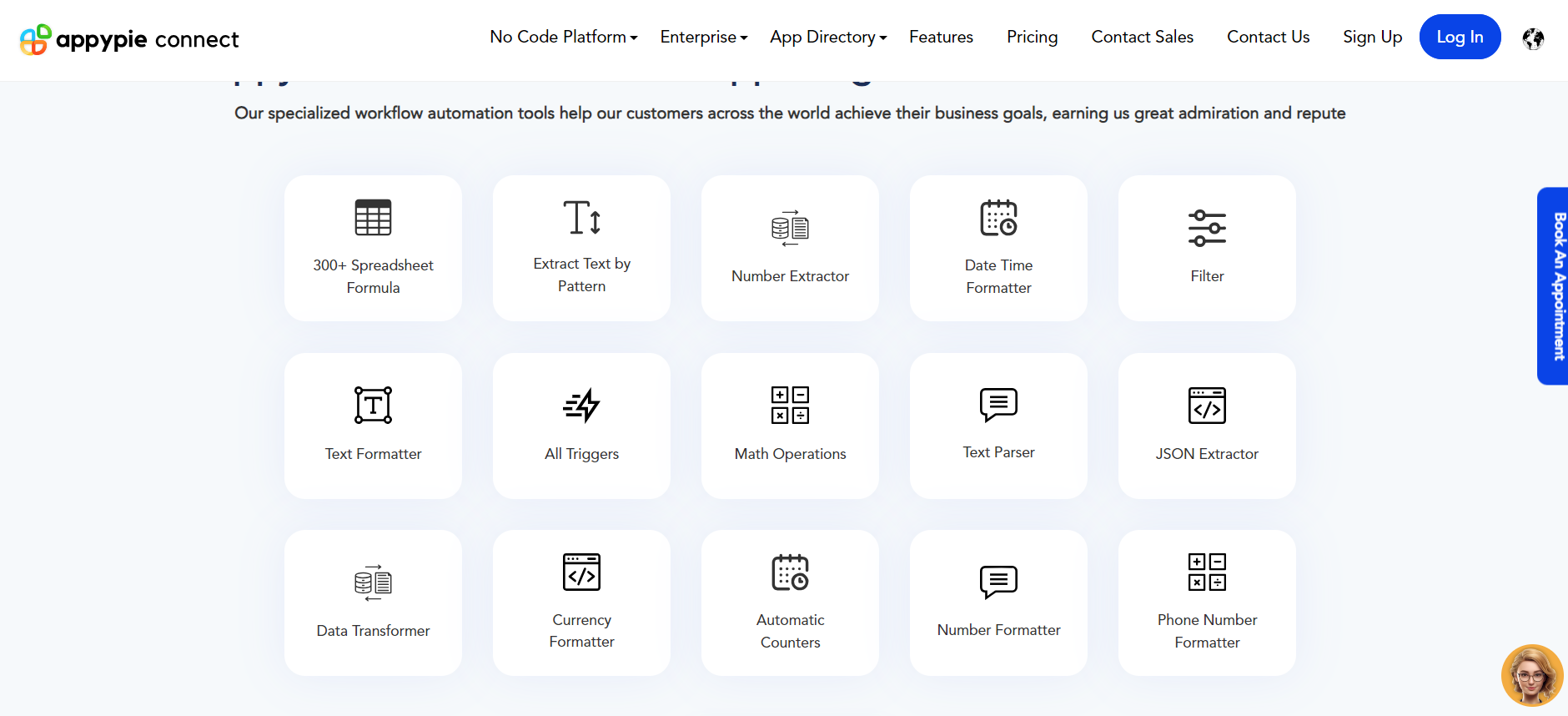
Marketing Features
Marketing featuresAssesses tools and options available for marketing.Score Components:
- SEO tools (40%): Effectiveness of SEO features.
- Marketing automation (30%): Availability and quality of marketing tools.
- Social Media integration (20%): Ease and depth of social media connectivity.
- Email marketing (10%): Quality and usability of email marketing tools.
 7.3
7.3
 7.5
7.5
🏆
Overall Winner: Appy Pie
. Appy Pie edges out BlueHost with a slightly higher score, indicating a more comprehensive set of marketing tools. However, both platforms offer a range of features, including SEO tools, email marketing, blogging, social media integration, analytics and reporting, and ads and promotions.

|

|
|
|---|---|---|
|
SEO Tools |
|
|
|
Email Marketing |
|
|
|
Blogging |
|
|
|
Social Media Integration |
|
|
|
Analytics and Reporting |
|
|
|
Ads and Promotions |
|
|
Customer Support
Customer supportEvaluates the quality and availability of support options.Score Components:
- Response time (40%): Speed of support responses.
- Support quality (30%): Effectiveness and helpfulness of the support.
- Availability (20%): Range of support channels (phone, chat, email).
- Resource richness (10%): Quality of self-help and educational materials.
 7.6
7.6
 8.2
8.2
🏆 Winner: Appy Pie
. Appy Pie edges out BlueHost with a customer support score of 8.2 compared to BlueHost’s 7.6. Appy Pie offers 24/7 customer support through various channels including live chat, email, and phone. They also provide extensive documentation and tutorials on their website to help users troubleshoot common problems on their own. For enterprise-level customers, Appy Pie offers enhanced support options, including priority email and chat support, and a dedicated account manager.
BlueHost also offers a variety of customer support options available 24/7, including chat and phone support for general inquiries. Technical assistance is available from 7 a.m. to midnight EST, seven days a week, via phone or by opening a Help Ticket for email support. However, BlueHost does not offer specific support for enterprises.
Security
SecurityLooks at the platforms’ security measures and data protection.Score Components:
- Data protection (40%): Safeguards for user and customer data.
- SSL and encryption (30%): Implementation of secure connections.
- Compliance (20%): Adherence to industry security standards.
- Regular updates (10%): Frequency of security updates and patches.
 8.3
8.3
 7.5
7.5
🏆
Winner: BlueHost
. BlueHost’s commitment to security is evident in their comprehensive measures, including SSL certificates, regular backups, SiteLock for malware scanning, and 24/7 monitoring. These features ensure that users’ data is handled securely and that websites hosted on their platform are protected from threats.
Appy Pie also prioritizes security with features such as SSL encryption, regular security audits, secure hosting, and two-factor authentication. However, compared to BlueHost, Appy Pie’s security measures are less comprehensive, which is reflected in their lower security score.
AI Capabilities
AI capabilitiesMeasures the effectiveness of AI-driven features and tools.Score Components:
- Automation efficiency (40%): Impact of AI on streamlining processes.
- Personalization (30%): AI-driven customization for users or customers.
- AI-Assisted design (20%): Role of AI in website design and functionality.
- Data analysis (10%): Use of AI in interpreting user data and analytics.
 1.5
1.5
 7.2
7.2

|

|
|
|---|---|---|
|
AI Website Builder |
|
Appy Pie’s AI website builder designs and customizes websites based on user preferences |
|
AI Ecommerce Features |
|
Personalized shopping experiences and AI chatbots for customer service |
|
AI Content Generation |
|
AI algorithms to generate content tailored to user goals and audience |
|
Additional AI Features |
|
Chatbots, virtual assistants, and AI-powered analytics |
🏆 Winner: Appy Pie
. With a score of 7.2, Appy Pie’s AI capabilities are comprehensive and user-friendly. It offers an AI website builder, AI ecommerce features, AI content generation, and additional AI features such as chatbots, virtual assistants, and AI-powered analytics. These features make website creation quick and easy for businesses and individuals, and help businesses automate customer interactions, make data-driven decisions, and create personalized user experiences.
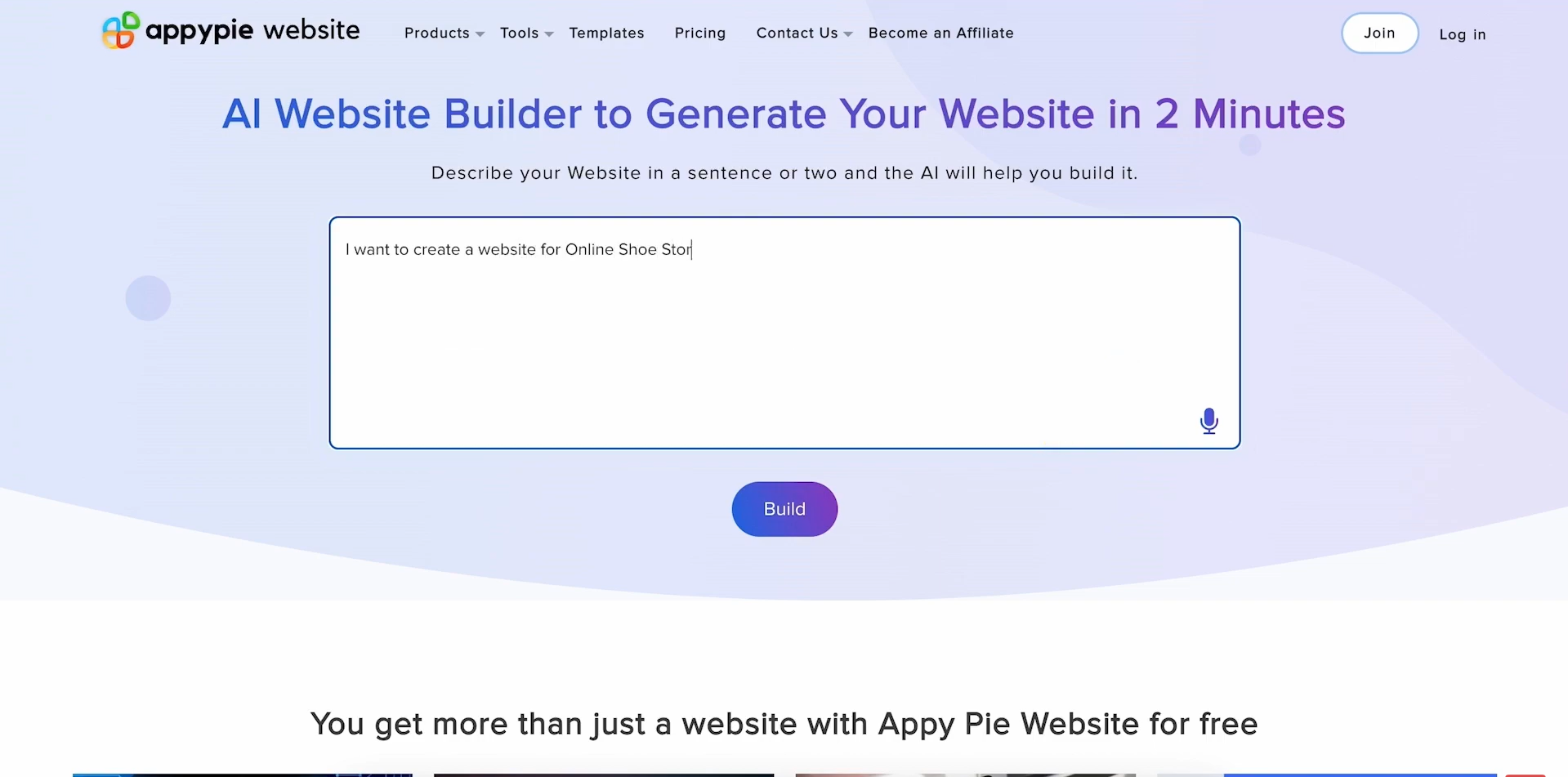
BlueHost, with a score of 1.5, does not have any AI capabilities. It is a comprehensive web hosting service that also offers a user-friendly website builder, but it lacks the AI features that Appy Pie offers.
User Management
User ManagementAssesses the platforms’ capabilities in managing user roles, permissions, and accessibility.Score Components:
- Role Customization (40%): Flexibility in creating and defining user roles and
permissions. - Ease of Management (30%): User interface and tools for managing users.
- Access Control (20%): Effectiveness of access control measures for different user
levels. - Scalability (10%): Ability to manage a growing number of users efficiently.
 4.4
4.4
 7.3
7.3
🏆 Winner: Appy Pie
. Both BlueHost and Appy Pie offer multi-user management, but Appy Pie provides more detailed and flexible options.
- BlueHost supports multi-user management, but there’s no specific mention about the number of users or their roles and permissions.
- The Appy Pie website builder offers different user access levels based on the plan chosen. For the Free Plan, one user has full editing privileges. Paid plans include the Starter Plan (3 users), Hobby Plan (5 users), Professional Plan (10 users), and Enterprise Plan (unlimited users). Each plan designates an Admin with full access and additional Editors with varying editing rights. Additionally, paid plans allow for customization of roles, enabling tasks such as content editing or design adjustments.
Unfortunately, neither BlueHost nor Appy Pie provided a detailed user roles table.
Additional Features

|

|
|
|---|---|---|
|
SSL Certificate |
|
|
|
Custom Domain |
|
|
|
Free Custom Domain Included |
|
|
|
International Domains |
|
|
|
Mobile Responsive |
|
|
|
Page Speed |
|
|
|
Website Builder Mobile App |
|
|
|
Convert a Website To An App |
|
|
|
Website Analytics |
|
|
|
Multilingual Sites |
|
|
|
Multiple Users |
|
|
User Feedback
Users appreciate BlueHost for its comprehensive free offerings, including SSL, subdomains, and custom email, along with additional services like free domain registration and CDN. The platform’s intuitive interface and user-friendly website builder cater to both beginners and experienced developers. However, concerns arise regarding the significant price increase upon renewal, limited free website templates, and unresolved technical issues with poor customer support, hindering users’ ability to effectively manage their websites and businesses. Addressing these concerns could enhance overall user satisfaction with BlueHost.
Appy Pie garners positive feedback for its user-friendly interface and excellent customer support, offering low-code solutions for app and website building without requiring coding experience. Users appreciate its ease of use, extensive features, and ability to create apps and websites quickly. While some express a desire for more customization options and templates, overall, Appy Pie serves as a valuable tool for businesses and individuals seeking to create apps and websites efficiently, solving the problem of complex coding requirements and providing a platform for easy communication and engagement with users.
The making of this blog
We followed a clear, step-by-step process to write and research this article.
FAQ
Which platform is better for ecommerce, BlueHost or Appy Pie?
Can I use both BlueHost and Appy Pie for creating informational business websites?
How do BlueHost and Appy Pie compare in terms of design functionalities and templates?
Which platform offers better customer support, BlueHost or Appy Pie?
Are there any AI capabilities available on BlueHost or Appy Pie?
Which platform is recommended for users with no coding experience?










